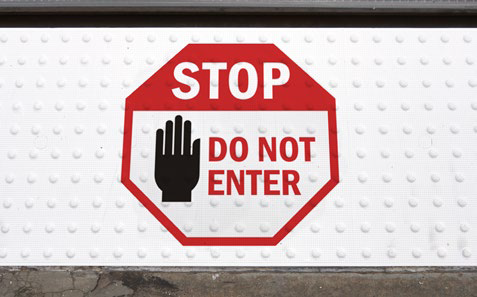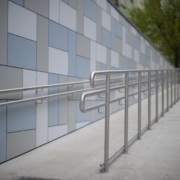What Is an ADA Violation?
The Americans with Disabilities Act, or ADA, protects employees with legally recognized disabilities from being discriminated against. It requires the places they work in, use, and patronize to accommodate them by providing amenities and access. Violations of the act can lead to a number of negative consequences.
Who Enforces ADA Regulations and Why?
The United States Department of Labor enforces ADA regulations, but there are also several others involved in enforcement. These include the Department of Transportation, the Federal Communications Commission, the Equal Employment Opportunity Commission, and the Department of Justice.
These federal agencies are involved with ADA enforcement because employers, governments, and businesses are bound by federal law to provide individuals with the same level of access that others enjoy.
What Constitutes an ADA Violation?
There are many disabilities and many different ways to accommodate them, which means that several violations are possible.
Workplace-Related Violations
A violation can occur when job postings discourage individuals with disabilities from applying, exclude them, or deny a qualified individual employment because of their disability. It is an ADA violation for any employer to demote, terminate, harass, or fail to provide reasonable accommodations to disabled employees. Other actions that constitute a violation are:
- Insufficient number of handrails in a walkway
- Failing to provide wheelchair ramps in necessary areas
- A lack of parking spots for disabled individuals
- Inadequate restroom facilities
Violations can also occur in the public spaces individuals patronize and can extend to the improper installation of certain accommodations like handrails or the neglect to maintain a wheelchair ramp.
Public Violations
Any public location can be found to have violated ADA regulations. These locations include movie theaters, restaurants, parks, retail stores, and sidewalks. Depending on where the violation occurred, a wide range of consequences may occur, including but not limited to:
- Fines
- Citations
- Injunctions
- Lawsuits
Public locations that have been found to be in violation of ADA regulations often find themselves in need of legal representation and many have been found to be liable for payment of damages.
What Can Businesses Do to Avoid ADA Violations?

Businesses need to be aware of what constitutes an ADA violation and also be aware of which accommodations need to be in place for disabled individuals. They shouldn’t discriminate against individuals nor allow their employees to do so. Employees should be trained in appropriate assistance of and interaction with disabled individuals.
Hiring policies should also focus on an individual’s qualifications. All public spaces, restrooms, parking lots, and entryways should be accessible at all times. One way to accomplish this is by installing ADA-compliant tiles.
ADA-Compliant Tiles for Every Business
Detectable warning surface tiles allow businesses to maintain their ADA compliance. ADA Solutions products include surface-applied, radius, cast-in-place, and photo-luminescent systems that provide safe access for all disabled individuals using public transit, sidewalks, street crossings, and other spaces.
Our high-quality, durable products, competitive pricing, and 7-year warranty make us the leading manufacturer of ADA-compliant tiles. Call 1-800-372-0519 for your free quote.










